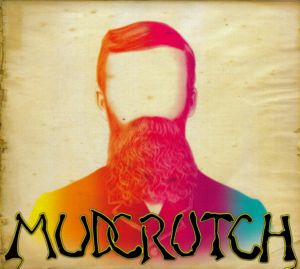
- Format: MP3

Like many old rock & rollers, Tom Petty decided to get the band back together after taking a leisurely stroll through his back pages. Prompted by his Runnin' Down a Dream project -- a four-hour Peter Bogdanovich documentary supplemented by a coffee table book -- Petty began thinking about his first band, Mudcrutch, the Southern rock outfit he had before the Heartbreakers that featured Tom Leadon, brother of Eagle Bernie, on lead guitar. Formed in Florida in 1970, Mudcrutch ambled out to Los Angeles four years later but they fell apart not long afterward, never recording more than a handful of singles and demos, several of which -- including the original version of "Don't Do Me Like That" -- later surfaced on Petty's 1995 box, Playback. Mudcrutch morphed into the Heartbreakers not long after the breakup, retaining guitarist Mike Campbell and keyboardist Benmont Tench, who joined after Leadon's 1972 departure, and as Campbell and Tench remain Petty's lieutenants to this day, even appearing on his solo albums without the Heartbreakers, the question is why would he bother reuniting Mudcrutch when he's working with two-thirds of the same band?
Clearly, chemistry counts and names mean something, as reuniting with Tom Leadon -- who never played with Tench in the original lineup -- and drummer Randall Marsh, with Petty himself sliding over to bass -- affects the sound and attitude of the band, turning the group's belated 2008 debut, Mudcrutch, into something far looser than any Petty project in recent memory. "Looser" suggests that Mudcrutch rock hard, following through on the rangy, cheerful raunch of those five tracks on Playback, but this album doesn't rock, not really. Mudcrutch ramble and roll, sometimes stretching out for upwards of ten minutes, sometimes stopping off for a circular circus instrumental, but they never quite ramp up the rock & roll, never lock into a thick swamp groove that would bring them back to their Southern roots. This is thoroughly a Californian album, all sun-bleached riffs and mellow grooves, so unhurried that it never breaks a sweat, more interested in the journey than the destination. More specifically, Mudcrutch is an uncanny evocation of latter-day Byrds, after Gram Parsons left for the Flying Burrito Brothers and Roger McGuinn brought in Clarence White for the winding jams of Untitled -- a connection Mudcrutch make explicit via a cover of that album's "Lover of the Bayou," which is paired with the Burritos' version of the Red Simpson anthem "Six Days on the Road." Although it has a quicker pulse than most of the 14 tracks here, Mudcrutch's version of "Six Days on the Road" lacks the zippy Bakersfield drive of the Burritos' version, as everything the band does is very, very laid-back, a sensibility these five guys absorbed years ago when the Byrds were still releasing new records. The remarkable thing about Mudcrutch is that it sounds like it could have been released in 1970 or 1971, with the obligatory Hurricane Katrina song "Orphan of the Storm" being the only concession to modern times (and even that departs only in topic, not sound).
On Petty's part, it's a conscious reconnection to the past, one that revitalizes him, albeit in a very low-key fashion. It's been a long, long time since he's released a record as band-oriented as this, emphasizing interplay and vibe over song and concept, not caring if there are loose ends and detours cluttering the record, and it's refreshing to hear him in such a casual setting. He sounds at ease as a singer and songwriter -- such seemingly tossed-off tunes as "Topanga Cowgirl," the wry "The Wrong Thing to Do," and "Bootleg Flyer" resonate deeper than carefully considered songs from recent efforts, as do more consciously substantive numbers like "Scare Easy" -- and he gladly shares the spotlight, letting Leadon have his original "Queen of the Go-Go Girls" and sing the first verse on an album-opening version of the folk standard "Shady Grove," while Tench writes the sly "This Is a Good Street." All these happy concessions, along with the strong emphasis on instrumental interplay, give Mudcrutch the feeling of a true band effort, and even if it's not perfect -- it is indeed possible to amble and ramble just a little bit too much -- it's thoroughly winning because of its imperfections, as this is music that's all about cruising down the back roads on a sunny nostalgic day.